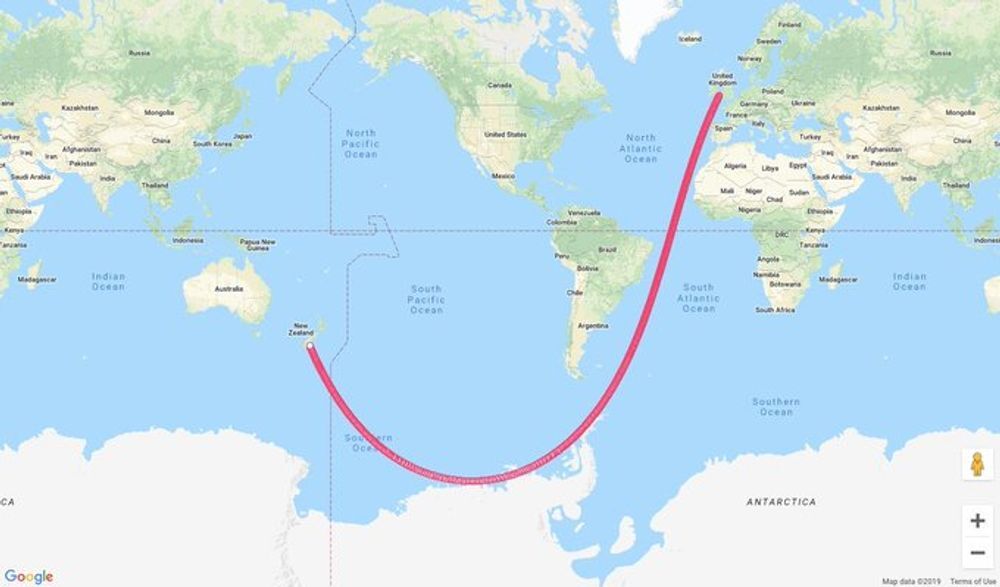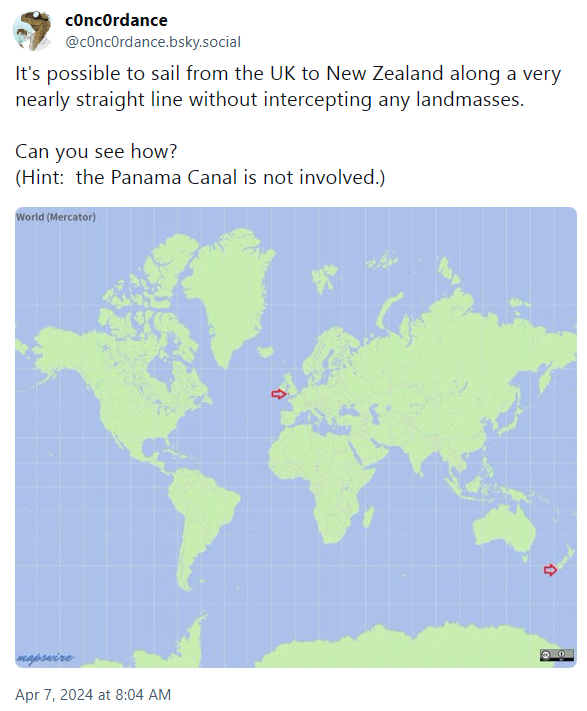this post was submitted on 07 Apr 2024
39 points (97.6% liked)
earth
12805 readers
14 users here now
The world’s #1 planet!
A community for the discussion of the environment, climate change, ecology, sustainability, nature, and pictures of cute wild animals.
Socialism is the only path out of the global ecological crisis.
founded 4 years ago
MODERATORS
you are viewing a single comment's thread
view the rest of the comments
view the rest of the comments


Of course you can have a straight line on a globe, pick a point and walk in one direction. Eventually you'll pass a point at which your distance to a pole starts to increase again but that doesn't mean the line isn't straight.
The line might not be straight in the ambient 3d space but on the 2d surface it is.
My point is that exactly. We live and move in 3D space, so the line has to be judged in 3 dimensions. You might as well say any curved line on a 2D map looks curved, but if you look at it in 1D it is perfectly straight
You limit yourself by only thinking in euclidean geometry. Spherical geometry is a well defined mathematical concept and straight lines in this metric have the intuitive definition of being the shortest path between two points.
Yes, using lat, long, and radius is better than xyz on the earth - usually. But the radius, the 3rd dimension, changes by where you are because the earth isn't actually a sphere. On this path it would get longer until you reached the equator, shorter until the most southerly point then longer again until you hit NZ. It is a wavy line not a straight one. Again you're projecting 3d onto 2d (because you're incorrectly assuming a fixed radius) and saying that that error in projection doesn't matter.